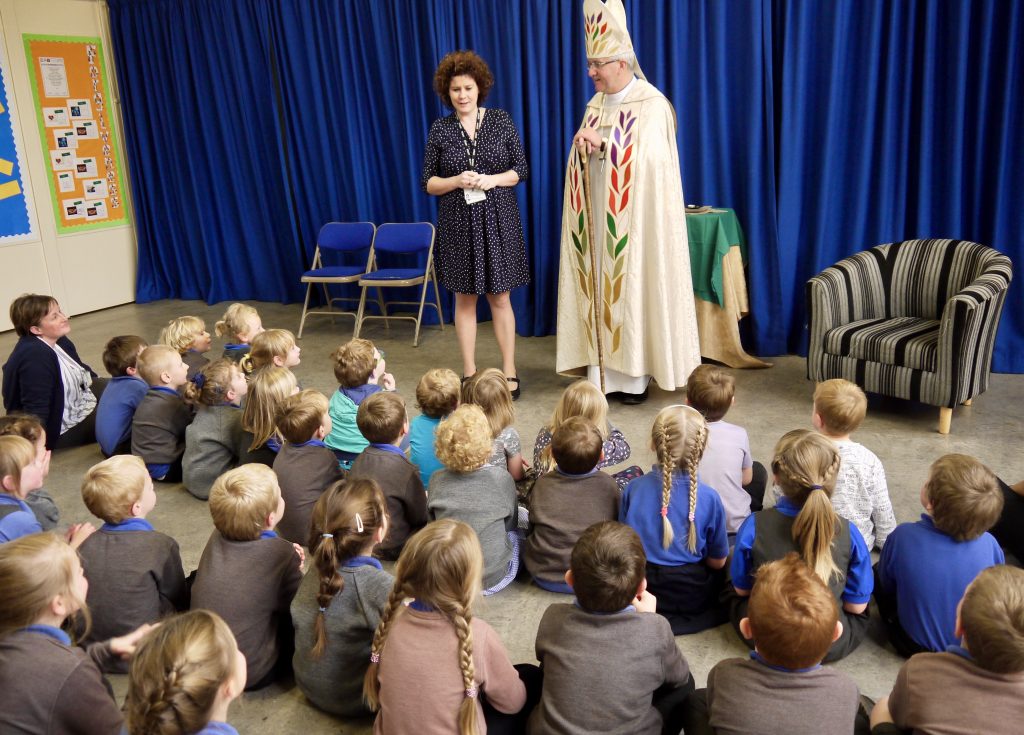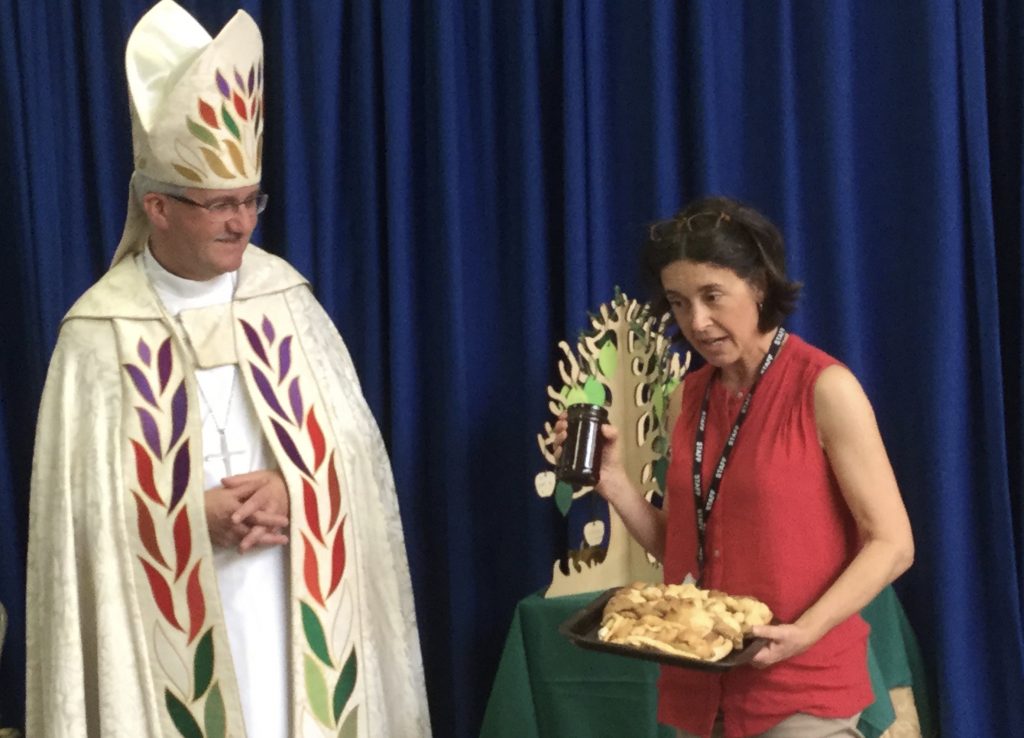The Bishop of Huddersfield, the Rt Revd Jonathan Gibbs who chairs our Board of Education met with three Wensleydale schools which are facing a deficit of £95,000 by March next year and suggested they could become part of a “wider grouping” as a solution to the financial crisis in rural education.
Visiting Bainbridge, Askrigg and West Burton schools, Bishop Jonathan said the Church recognised the “huge and important role” that schools play in the life of their communities.
He explained that the Diocese of Leeds was encouraging the formation of multi-academy trusts and discussing with local authorities how schools could work together more effectively.
"Some dioceses have formed one multi-academy trust, and schools can be invited to join them,” said the bishop. “The trouble with our diocese [Leeds] is that it is huge, taking in the whole of West Yorkshire and half of North Yorkshire with 245 church schools. So we are encouraging the setting up of multi-academy trusts in each part of the diocese. Within them you can have church and non-church schools. We’ve been having a conversation to see whether it would be possible to have a larger grouping within which these three schools (BAWB) might be located,” he said.
Bishop Jonathan had a formal meeting with governors of the federation, before touring the three schools and engaging with the children.
 Asked if he thought the Church could act to save the federated schools he said that a new national funding formula had recently been announced, but warned that there was “no pot of gold.”
Asked if he thought the Church could act to save the federated schools he said that a new national funding formula had recently been announced, but warned that there was “no pot of gold.”
“The bottom line is that the money for schools comes from Government and we don’t have a pot of gold to dip into. Having said that, the new funding formula announced in the last couple of weeks offers a small glimmer of hope for rural schools in that the arrangements seem a little bit more favourable than the old ones were. But only a little bit.
“The thing we can do is to work with schools and local authorities to look at new ways of enabling small schools to work together in more cost-effective ways. As Chair of the Diocesan Board of Education my focus today is on the life of these three schools and the wonderful education they provide.
"The Church wants to support and encourage and develop that as far as possible. The Church of England takes a huge interest in the education of children across the nation and and wherever possible we want to maintain and develop them for the good of the whole community,” he added.
Bishop Jonathan said he was also encouraging conversations at national level between the church, the government and local authorities to get “joined up thinking” on the whole future of rural communities, not taking education in isolation. The Department of Environment, Food and Rural Affairs, the Department of Communities and Local Government, the Department of Education and the church would all be involved.
Executive headteacher of the BAWB federation, Charlotte Harper, pictured right introducing Bishop Jonathan to the children, said the recently postponed drop-in sessions to discuss the future of the three schools would now take place in the spring term.
“The government has made details of the new funding formula available, but the local authority now has to decide how those funds will be allocated. We expect that decision to be made later this term,” she said.
 Natasha Johnston, left, teacher responsible for worship and church school ethos at Bainbridge, presents the bishop with a harvest bread sheaf and home-made jam.
Natasha Johnston, left, teacher responsible for worship and church school ethos at Bainbridge, presents the bishop with a harvest bread sheaf and home-made jam.
THIS STORY FIRST APPEARED IN RICHMONDSHIRE TODAY - All pictures courtesy of Richmondshire Today